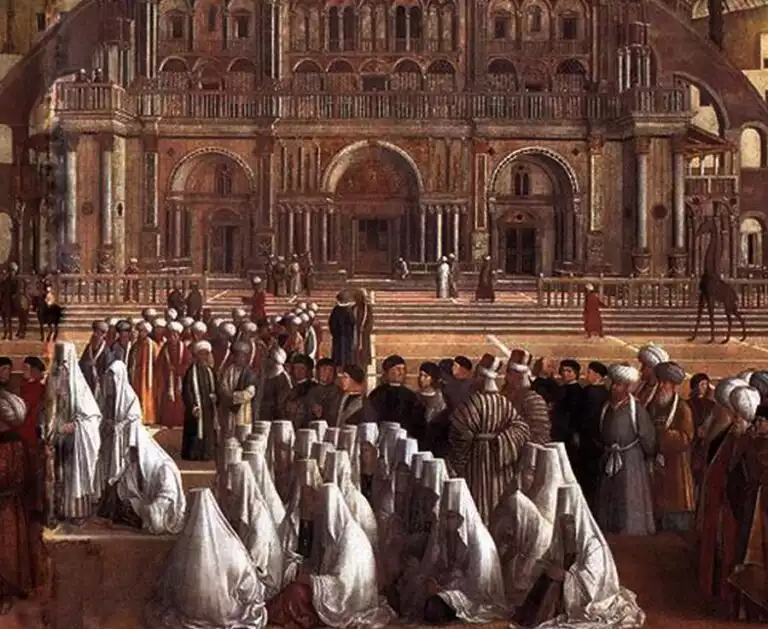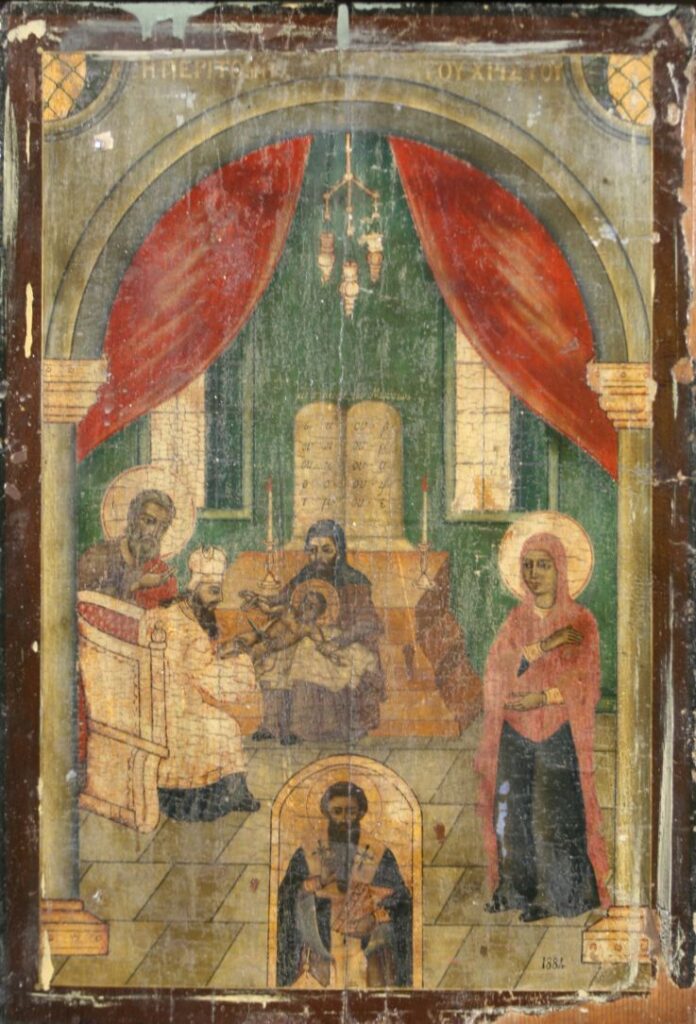Yarn | חוּט (Chut) | Noun
Etymology and Semantic Analysis The English word ‘yarn’ is synonymous with a long, continuous strand of interlocked fibers used for knitting or weaving. In the Bible, the Hebrew term חוּט (Chut) represents ‘yarn’ or ‘thread’. The word appears in a handful of Old Testament verses but is notably absent in the New Testament Greek texts. […]
Drink | πίνω (pino) | Verb
Etymology and Semantic Analysis The word ‘drink’ in English is derived from the Old English ‘drincan’, signifying the act of consuming a liquid. In the New Testament, the Greek verb πίνω (pino) is frequently used, encapsulating both the physical act of drinking and metaphorical interpretations. Notable occurrences of πίνω are found in various contexts, such […]
Unlocking Mysteries: Early Byzantine Art 330-527

In the chronicles of art history, the Early Byzantine period, extending from 330 to 527, represents a significant epoch of artistic transformation and cultural evolution. This era, contextualized by the life events of Jesus Christ (birth before 4 BCE, baptism around 28 or 29 CE, and crucifixion between 30 and 33 CE), signifies a critical […]
Daughter | Θυγάτηρ (Thugater) | Noun
Etymology and Semantic Analysis The word ‘daughter’ in English translations of the Bible is primarily derived from the Greek word ‘Θυγάτηρ’ (Thugater) in the New Testament and the Hebrew word ‘בַּת’ (Bath) in the Old Testament. In the New Testament, ‘Θυγάτηρ’ carries a direct and literal meaning, referring to a female offspring. This term appears […]
Darkness | σκότος (Greek) | Ηoshekh (Hebrew) | Noun
Etymology and Semantic Analysis The English term “darkness” originates from the Old English word “deorc,” denoting the absence of light. In Biblical contexts, it is primarily translated from two words: the Greek “σκότος” and the Hebrew “חושך” (Hoshekh). The Greek “σκότος” appears in the New Testament in various contexts, often metaphorically to represent spiritual ignorance […]
Quaternions in the Bible | Greek: τετράδιον (tetradion) | Noun
Definition The term “quaternions” in Biblical context refers to a group of four soldiers. This word is specifically used in the New Testament to describe the Roman military practice of assigning four soldiers to guard a prisoner. The concept of a quaternion is intrinsically linked to the Roman military system and its administrative practices. Various […]
Alleluia | The Multifaceted Significance of a Sacred Exclamation

Alleluia, a term resonant with spiritual profundity, serves as an exclamation of praise and worship within various religious traditions. This word, embodying a jubilant spirit, is frequently encountered in Christian liturgies and hymns, symbolizing joyous acclamation and divine adoration. Its etymological roots can be traced to the Hebrew phrase “Hallelujah,” which translates to “Praise the […]
Circumcision of Jesus Christ | Symbolic Ritual and Its Theological Significance

The Circumcision of Jesus Christ, observed annually on January 1st, represents a significant moment in Christian theology. This event, commemorating the physical circumcision of Christ on the eighth day after His birth, affirms the incarnation of God in human form and His entry into God’s covenant with humanity. The Circumcision of Jesus Christ is not […]
